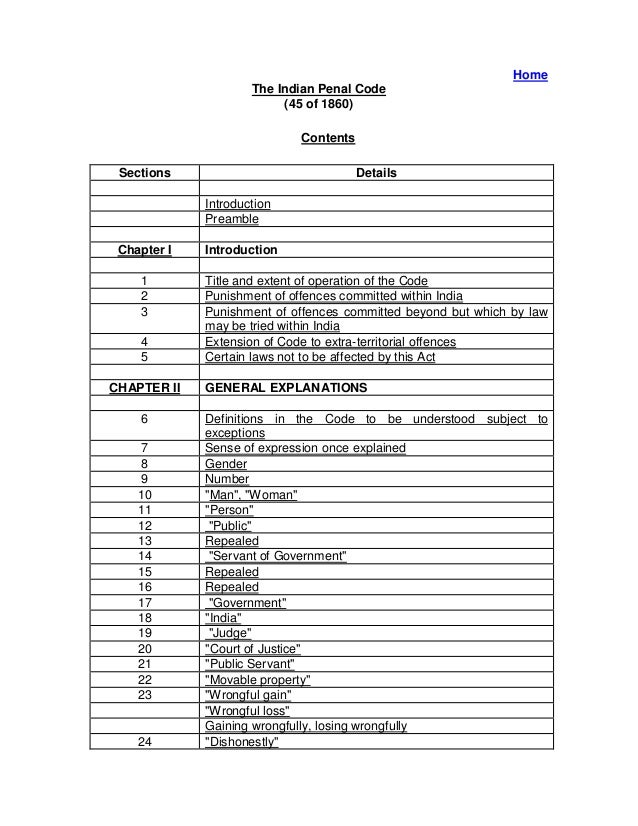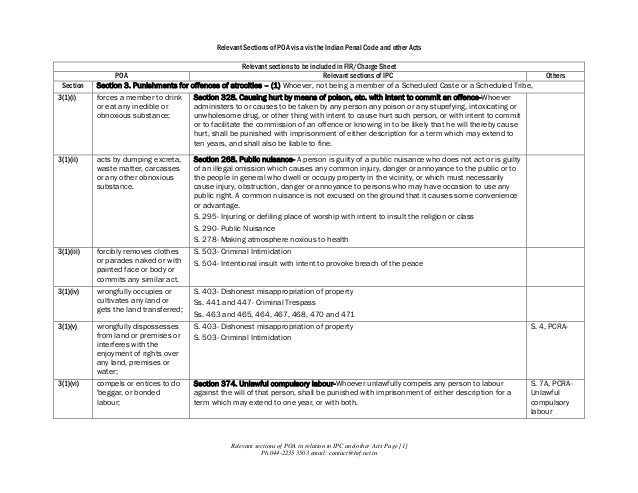Section 341 Indian Penal Code

Section 34 of the indian penal code talks about the joint liability of persons involved in a criminal act it says that if more than one person is involved in a criminal act done to satisfy a common intention then each of such persons will be liable in the same way as if it was done by him alone.
Section 341 indian penal code. Section 441 in the indian penal code. Punishment for wrongful restraint. Of punishments chapter iv.
The criminal code of the country must have some principles to be applied to such cases. It came into force in british india during the early. The indian penal code ipc is the official criminal code of india it is a comprehensive code intended to cover all substantive aspects of criminal law the code was drafted on the recommendations of first law commission of india established in 1834 under the charter act of 1833 under the chairmanship of lord thomas babington macaulay.
Whoever wrongfully restrains any person shall be punished with simple imprisonment for a term which may extend to one month or with fine which may extend to five hundred rupees or with both. Punishment for wrongful restraint whoever wrongfully restrains any person shall be punished with simple imprisonment for a term which may extend to one month or with fine which may extend to five hundred rupees or with both. Section 341 ipc deals with the provisions of punishment for wrongfully restraining a person from moving to a place or direction where he has a right to go.
Of abetment chapter va. Criminal conspiracy chapter vi. The offence of wrongful restraint defined under section 339 is punished under this section.
Punishment for wrongful restraint is defined under section 341 of the indian penal code as whoever wrongfully restraints someone s right will be sentenced with either simple imprisonment which may extend to one month a fine which may extend to 500 or with both. Punishment for wrongful restraint. One such principle in india is under section 34 of the indian penal code.
General exceptions of the right of private defense chapter v. Criminal trespass whoever enters into or upon property in the possession of another with intent to commit an offence or to intimidate insult or annoy any person in possession of such property or having lawfully entered into or upon such property unlawfully remains there with intent thereby to. Of offences relating to the army navyand.

















